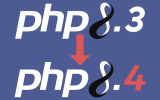Revisiting the Drupal Modules of Yesteryears
When time unapologetically marches forward, memories wait to be discovered anew. These discoveries are curious reminders of what shaped us and the long way we have treaded since. The Drupal community was offered such a breadcrumb when Enrique Worwa revisited a Drupal forum discussion from June 29, 2007, through a LinkedIn post.
In 2007, Drupal enthusiasts were buzzing with excitement about their favorite modules. They shared insights, recommendations, and personal experiences, creating a snapshot of the Drupal community's mindset at the time.

Enrique recalls Drupal being referred to as the "Swiss Army Knife" of content management systems for its versatility and flexibility. Now it is composable!
Another major standout from this historical Drupal discussion is understanding the basic terminologies used. To cite an example, Image.module = default image handling package, whereas Imagecache is a comprehensive image handling beast that slides nicely into any site with uploadable images. Sixteen years ago, "Imagecache" was praised for its image-handling capabilities. It auto resized images for appropriate screensizes. The concept was so old! It is now part of Drupal core as imagestyle, rendering imagecache module obsolete.
"Automatic Nodetitles" and "Nodequeue" were hailed for simplifying content management. These modules may have evolved, but their core concept of making content organization more efficient and user-friendly remains as relevant as ever in the context of today's content-rich websites. Drupal has transitioned to entities from nodes, and Nodequeue has transformed into Entityqueue. It is popular with the Drupal crowd, with over 27K plus using it. Automatic Entity Label that replaced Automatic Nodetitles is used by 45K plus.
Similarly, "Devel," a debugging and development tool, was deemed "compulsory" back then. In 2023, debugging is still an integral part of web development, and Devel likely continues to be a trusty companion for Drupal developers.
The Bibliography module, a.k.a Drupal Scholar, was a favorite then, and now it is replaced with the Bibliography & Citation module.
Yet, not all modules have weathered the sands of time equally. Some, like the "Upcoming.org" integration, were deemed invaluable concepts in 2007 but may have fallen by the wayside. A user toots their horn on the creation of Content Type Administration by Organic Group module, which is unsupported presently. People still miss Organic Group Module, but there are replacements, such as Groups. Likewise, Rules got railroaded by ECA: Event - Condition - Action.
Revisiting the past isn't just about reminiscing or acknowledging what has endured; it's also about recognizing the evolution of technology and the continuous pursuit of improvement. The tools and modules that were once groundbreaking might have given way to more advanced alternatives, but their legacy remains in the foundations of modern web development.
Know more by revisiting the conversations that once kept the Drupal community alive by accessing this link.
Note: The vision of this web portal is to help promote news and stories around the Drupal community and promote and celebrate the people and organizations in the community. We strive to create and distribute our content based on these content policy. If you see any omission/variation on this please let us know in the comments below and we will try to address the issue as best we can.























